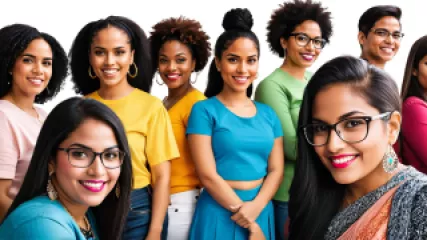Challenging Traditional Gender Roles in Society
Gender roles in society have long been a topic of discussion and debate. Throughout history, certain expectations and norms have been imposed on individuals based on their gender, dictating how they should behave, dress, and interact with others. However, in recent years, there has been a growing movement towards challenging traditional gender roles and promoting gender equality.
The Evolution of Gender Roles
Gender roles are deeply rooted in cultural and societal norms, which vary across different communities and countries. Traditionally, men were expected to be the breadwinners, assertive, and dominant, while women were assigned the roles of nurturing, caregiving, and maintaining the household. These stereotypes were reinforced through media, education, and socialization.
However, as societies have evolved and progressed, so too have our understandings of gender. The feminist movement of the 20th century played a significant role in challenging these traditional gender roles and advocating for equal rights for women. This movement brought attention to the ways in which gender roles limit individual potential and perpetuate inequality.
Today, many individuals and organizations are actively working towards breaking down gender stereotypes and promoting gender equality. They recognize that gender should not dictate one's abilities, interests, or opportunities.
The Impact of Gender Roles on Social Behavior
Gender roles heavily influence social behavior. From childhood, boys and girls are often taught to conform to certain expectations that align with their assigned gender. These expectations can shape how they communicate, express emotions, and navigate relationships.
For example, boys are often discouraged from expressing vulnerability or emotions other than anger, as these qualities are associated with weakness. On the other hand, girls may be encouraged to prioritize the needs of others over their own, reinforcing the stereotype of women as nurturers and caretakers.
These gender norms can limit individuals' authentic expression and hinder their ability to form meaningful connections. Breaking free from these constraints allows individuals to embrace their true selves and form relationships based on mutual respect and understanding, rather than rigid gender roles.
Challenging Traditional Gender Roles
Challenging traditional gender roles requires a collective effort from individuals, communities, and institutions. It involves questioning and dismantling the assumptions and stereotypes that underpin gender norms and values.
Educational institutions play a crucial role in challenging gender roles by promoting inclusive curricula, teaching critical thinking skills, and fostering open discussions about gender and identity. By exposing students to diverse perspectives and experiences, schools can help break down stereotypes and encourage empathy and understanding.
The media also has a significant influence on shaping societal perceptions of gender. By portraying diverse representations of gender and challenging stereotypes in movies, TV shows, and advertisements, the media can help reshape societal attitudes towards gender roles.
The Importance of Communication
Effective communication is essential in challenging traditional gender roles. Open and honest conversations about gender and its impact on individuals' lives can help raise awareness, challenge biases, and promote acceptance.
Parents, educators, and community leaders can play a vital role in facilitating these conversations. By encouraging children and young adults to question gender norms and engage in dialogue about equality and diversity, we can create a more inclusive society.
Furthermore, it is important to recognize that gender is not binary. Many individuals identify outside of the traditional male and female categories, and their experiences and perspectives deserve validation and respect. Embracing gender diversity means acknowledging and celebrating the full spectrum of gender identities.
Conclusion
Challenging traditional gender roles is crucial for creating a more equitable and inclusive society. By breaking free from the limitations imposed by gender norms, individuals can pursue their passions, form meaningful connections, and contribute to their communities in authentic and fulfilling ways.
Through education, media representation, and open communication, we can continue to challenge and redefine gender roles, fostering a society that values and respects the diversity of human experiences.






